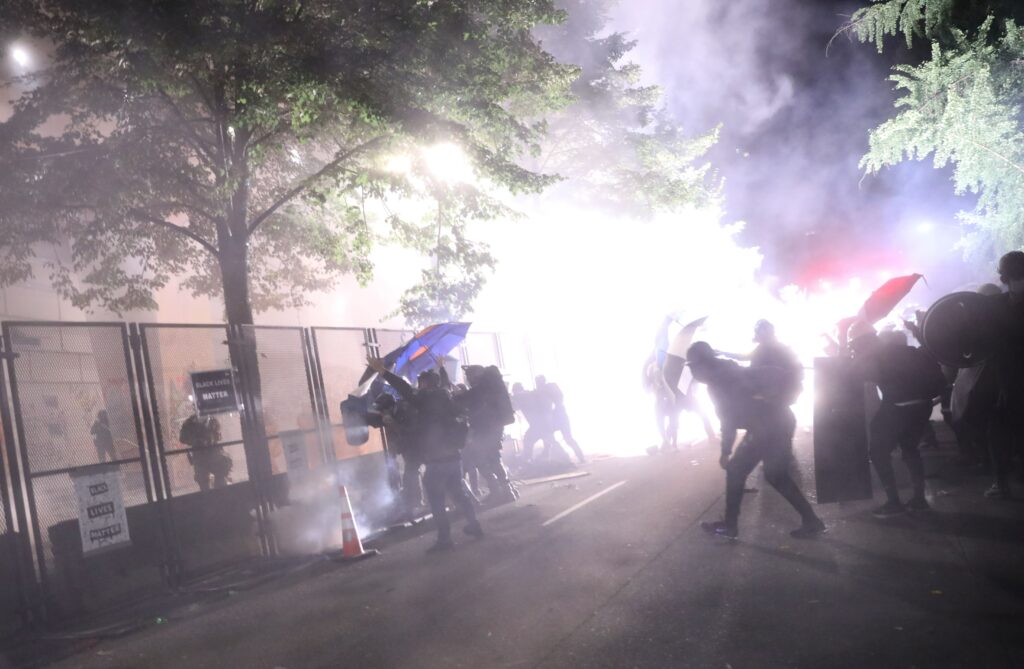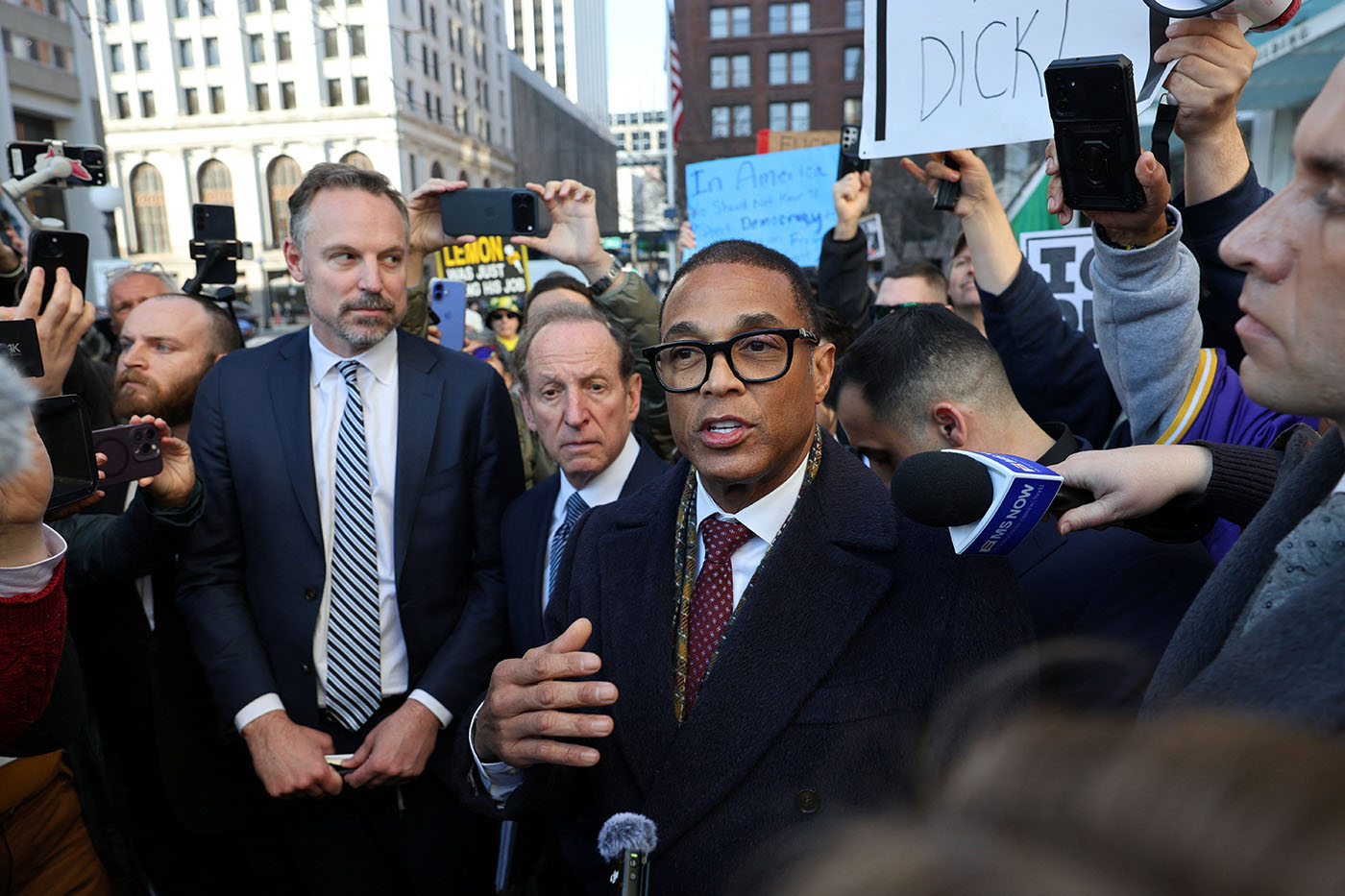10/13/2020 Update: After initially staying the injunction, the United States Court of Appeals for the Ninth Circuit reinstated the order baring federal agents from assaulting journalists and legal observers.
Ever since federal agents arrived in Portland, Oregon in early July to defend federal property from alleged vandalism, reports have emerged of them targeting journalists, photojournalists, and legal observers.
For example, on July 15th a photojournalist said federal agents fired tear-gas at him while he stood 40 feet away from a protest taking pictures. Four days later, another photojournalist who wore a bright yellow vest marked “PRESS” said that federal agents shot him in the chest with a less-lethal munition.
See also: Oregon Sues Federal Agencies For Violating Porlanders’ First Amendment Rights to Protest
On July 23rd, the U.S. District Court for the District of Oregon granted the American Civil Liberties Union’s request for a temporary restraining order barring federal agents and employees from arresting, threatening to arrest, or using physical force against journalists and legal observers who are not engaged in harmful or illegal conduct.
In a hearing about the ACLU lawsuit, attorney Andrew Warden of the U.S. Department of Justice argued that it would be too difficult for federal officers to distinguish between good and bad actors, and that the press is guaranteed “no special rights of access above and beyond the public.”
However, Judge Michael H. Simon said that he found it unlikely the recent attacks were unintentional products of maintaining public safety, writing “the plaintiffs were identifiable as press, not engaging in unlawful activity or protesting, were not standing near protesters, and yet were subject to violence by federal agents.”
Simon also disagreed withWarden’s implication that journalists had no legal right to remain in an area where officers had issued an order to disperse.
“The point of journalists observing and documenting government action is to record whether the ‘closing’ of public streets (e.g., declaring a riot) is lawfully originated and carried out. Without journalists and legal observers, there is only the government’s side of the story to explain why a ‘riot’ was declared and the public streets were ‘closed’ and whether law enforcement acted properly in effectuating that order,” Simon reasoned.
According to Oregon Live, the judge has ordered that the ruling be widely distributed to U.S. Attorney General William Barr, the acting Homeland Security secretary, and all federal personnel currently deployed in Portland.
Tags



